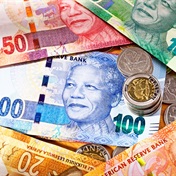Tax experts are sounding alarm bells against a possible hike in personal or corporate income tax rates in the upcoming Budget, saying an increase would have a devastating impact in an economy where most people’s real incomes have remained flat and consumer expenditure is at record lows.
The warning comes ahead of Budget 2020 on February 26, where Minister of Finance Tito Mboweni will need to table a plan to deal with the country's widening tax revenue shortfall. In the medium-term budget statement in October, National Treasury revealed that SA’s gross tax revenue was expected to fall short of budget estimates by R52.5bn in 2019/20 and R84bn in 2020/21.
And as more companies in the mining, retail and banking sectors announce retrenchments, government is losing out on personal income taxes. At the same time, local companies have reported below average earnings growth for 2019, affecting the amount of corporate income (CIT) taxes that can be collected.
No scope to raise income taxes
But while the South African Revenue Services will need to recover this money somewhere, tax experts say there is no room to raise income taxes, the category that makes up the bulk of collections in SA. PIT accounted for 38.3% of tax revenue collected in the 2018/19 fiscal year, while CIT brought in 16.6%. Value-added Tax contributed 25.2%.
“There’s no scope to increases taxes at all,” said PwC’s head of tax policy, Kyle Mandy.
Mandy argued that taxpayers are already under significant pressure from increasing prices of basics like petrol and electricity. Poor economic growth over the past two years is also also not supportive of raising taxes, given that whatever category government may be tempted to look at, it will eventually reduce consumers’ spending power further, fuelling a cycle of shrinking economic activity.
But if there is no choice but to raise taxes, Mandy said government should ideally steer away from income taxes. “Corporate income tax and personal income tax are the most damaging from an economic growth perspective,” he said.
Lance Collop, associate director of global business tax services at Deloitte Africa, said a reduction in the corporate income tax rate of 28% was actually needed. “While this may appear counter-intuitive given the revenue shortfall gap, the reality is that South Africa’s CIT rate has become uncompetitive when measured against that of our major trading partners.
He pointed out that for example, the United States has in recent times reduced its CIT rate from 35% to 21%, the United Kingdom from 30% to 19%, and China’s CIT rate is currently 25%.
Mandy said raising property rates would be the least damaging to the economy, but raising them wouldn’t help much in SA because these are collected at local government level. The next least damaging tax is VAT, said Mandy. But when government raised VAT to 15% in 2018, it created an uproar among unions who accused the state of adopting regressive taxes where poor pay more because of their low-income levels.
“There are trade-offs that will need to be made. Admittedly that’s a political hot potato and that’s the issue. But frankly, the bottom line is if government says it needs to raise significant additional taxes, north of R20bn, we really don’t have a choice,” said Mandy.
Close the tax leaks
Colin Wolfsohn, partner at accounting and tax advisory firm, Wolfsohn & Associates, said SARS can’t keep pushing up taxes while government departments waste billions of rands in unauthorised and wasteful expenditure.
“If one looks at tax shortages over the last few years and then look at the auditor general’s report of unauthorised spending by various government departments, it more than covers our tax shortfall. If there was compliance throughout the country and there wasn’t this unauthorised spending, there wouldn’t be so much pressure on National Treasury to collect more money,” said.
Mandy says collecting more taxes from the illicit economy and strengthening SARS collection capacity could go a long way into closing the tax revenue shortfall. SARS said in January that the reconstituted Illicit Economy Unit, which focused on illicit activities such as tobacco smuggling, illegal imports and counterfeit goods recovered R2.6bn in taxes since 1 April 2019.
“The ideal is that they don’t raise tax rates at all and that they just improve collections. I don’t think it’s unreasonable to expect that SARS, through improved enforcement, could collect an additional R10bn,” said Mandy.




 Publications
Publications
 Partners
Partners











